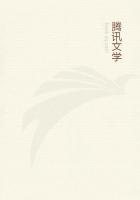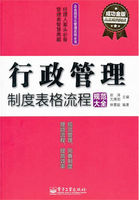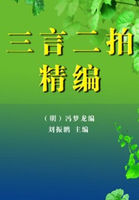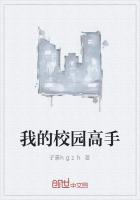Every mechanical invention which lessens the necessity for rough, untrained, muscular, human labour, diminishes also the social demand upon woman as the producer in large masses of such labourers.Already throughout the modern civilised world we have reached a point at which the social demand is not merely for human creatures in the bulk for use as beasts of burden, but, rather, and only, for such human creatures as shall be so trained and cultured as to be fitted for the performance of the more complex duties of modern life.Not, now, merely for many men, but, rather, for few men, and those few, well born and well instructed, is the modern demand.And the woman who today merely produces twelve children and suckles them, and then turns them loose on her society and family, is regarded, and rightly so, as a curse and down draught, and not the productive labourer, of her community.Indeed, so difficult and expensive has become in the modern world the rearing and training of even one individual, in a manner suited to fit it for coping with the complexities and difficulties of civilised life, that, to the family as well as to the state, unlimited fecundity on the part of the female has already, in most cases, become irremediable evil; whether it be in the case of the artisan, who at the cost of immense self-sacrifice must support and train his children till their twelfth or fourteenth year, if they are ever to become even skilled manual labourers, and who if his family be large often sinks beneath the burden, allowing his offspring, untaught and untrained, to become waste products of human life; or, in that of the professional man, who by his mental toil is compelled to support and educate, at immense expense, his sons till they are twenty or older, and to sustain his daughters, often throughout their whole lives should they not marry, and to whom a large family proves often no less disastrous; while the state whose women produce recklessly large masses of individuals in excess of those for whom they can provide instruction and nourishment is a state, in so far, tending toward deterioration.The commandment to the modern woman is now not simply "Thou shalt bear," but rather, "Thou shalt not bear in excess of thy power to rear and train satisfactorily;" and the woman who should today appear at the door of a workhouse or the tribunal of the poor-law guardians followed by her twelve infants, demanding honourable sustenance for them and herself in return for the labour she had undergone in producing them, would meet with but short shrift.And the modern man who on his wedding-day should be greeted with the ancient good wish, that he might become the father of twenty sons and twenty daughters, would regard it as a malediction rather than a blessing.It is certain that the time is now rapidly approaching when child-bearing will be regarded rather as a lofty privilege, permissible only to those who have shown their power rightly to train and provide for their offspring, than a labour which in itself, and under whatever conditions performed, is beneficial to society.(The difference between the primitive and modern view on this matter is aptly and quaintly illustrated by two incidents.Seeing a certain Bantu woman who appeared better cared for, less hard worked, and happier than the mass of her companions, we made inquiry, and found that she had two impotent brothers; because of this she herself had not married, but had borne by different men fourteen children, all of whom when grown she had given to her brothers."They are fond of me because I have given them so many children, therefore I have not to work like the other women; and my brothers give me plenty of mealies and milk," she replied, complacently, when questioned, "and our family will not die out." And this person, whose conduct was so emphatically anti-social on all sides when viewed from the modern standpoint, was evidently regarded as pre-eminently of value to her family and to society because of her mere fecundity.On the other hand, a few weeks back appeared an account in the London papers of an individual who, taken up at the East End for some brutal offence, blubbered out in court that she was the mother of twenty children."You should be ashamed of yourself!" responded the magistrate; "a woman capable of such conduct would be capable of doing anything!" and the fine was remorselessly inflicted.Undoubtedly, if somewhat brutally, the magistrate yet gave true voice to the modern view on the subject of excessive and reckless child-bearing.)Further, owing partly to the diminished demand for child-bearing, rising from the extreme difficulty and expense of rearing and education, and to many other complex social causes, to which we shall return later, millions of women in our modern societies are so placed as to be absolutely compelled to go through life not merely childless, but without sex relationship in any form whatever; while another mighty army of women is reduced by the dislocations of our civilisation to accepting sexual relationships which practically negate child-bearing, and whose only product is physical and moral disease.
同类推荐
热门推荐
纸婚厚爱,拒嫁优质前夫
柯凌潇的新婚婚礼上,他嫌恶得擦去沾染在嘴角的鲜红唇膏,薄情嘲笑,“十亿倒贴的女人,味道还真不错。”受嘲讽的黎渃像只受惊的小鹿,哀伤的眼神中蒙上了一层化不开的水气。而他没有怜悯之心,有的只是嗤笑之意,“真丑,跟丑八怪多呆一分钟都让我窒息!”柯凌潇的再婚婚礼上,黎渃身着黑裙,高调出现。红唇轻启,盛气凌然,“别关注我,今天的主角是站在我前夫身边的那一位才对。”目光交错,流言四起。小三上位,正牌观礼。黎渃含笑,注视着那个就连施舍的笑都不曾给予自己的前夫!柯凌潇......你准备好迎接我即将要呈现给你的重重惊喜了吗?行政管理制度表格流程规范大全
《行政管理制度表格流程规范大全(成功金版)》内容包括办公用品管理,办公设备管理、办公费用管理,印章、证照、文件资料、档案管理,会议、提案、行政事务、法务管理,员工考勤、出入、假务管理,员工出差管理,车辆管理,招待与接待管理,宿舍食堂管理,环境与安全管理等的日常管理工作,涉及多个行业的企业制度范例以及大量“拿来即用”的模板、量表。它将告诉你如何让繁杂的行政工作变得更有条理,让行政管理变得更有效率。三言二拍精编(4册)
“三言”所收录的作品,无论是宋元旧篇,还是明代新作和冯梦龙拟作,都程度不同地经过冯梦龙增删和润饰。这些作品,题材广泛,内容复杂。有对封建官僚丑恶的谴责和对正直官吏德行的赞扬,有对友谊、爱情的歌颂和对背信弃义、负心行为的斥责。更值得注意的,有不少作品描写了市井百姓的生活。“二拍”的有些作品反映了市民生活和他们的思想意识。“二拍”善于组织情节,因此多数篇章有一定的吸引力,语言也较生动。


